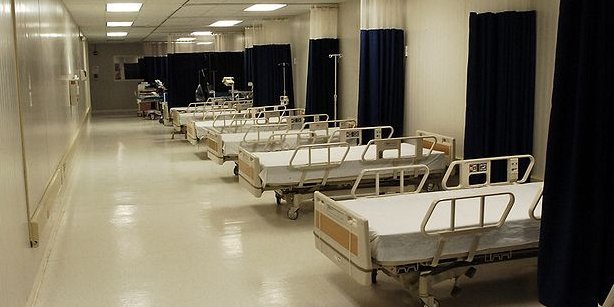Two Fife councillors have called for an investigation after revelations that bed blocking in the region’s hospitals is the worst in Scotland.
Labour leader Alex Rowley and independent Andrew Rodger are seeking talks with health and social work chiefs, and have asked Fife MSPs to look into the matter.
They are concerned by the numbers stuck in hospital due to lack of funding and resources in the community. The issue, known as bed blocking or delayed discharges, involves mainly elderly patients who no longer need hospital treatment but cannot be discharged until appropriate care is arranged at home or elsewhere.
The latest figures show 100 patients were waiting to be discharged from Fife hospitals in July, taking up 8.7% of occupied beds. The next worst region was Forth Valley, where the figure was 5.4%.
Amid fears the situation will escalate in winter, Mr Rowley and Mr Rodger called for greater joint working and sharing of resources.
In a report on winter planning to the NHS Fife Board last week, operational division chief executive John Wilson said a rise in delayed discharges in the run-up to winter was a significant risk. The result would be insufficient beds to maintain patient flow, which would lead to an inability to manage emergency admissions. The four-hour A&E standard could not be maintained, and inpatient and day-case waiting times would increase.Further riskMr Wilson said a further risk was that NHS Fife would not be able to fund the increased community services and care home places needed.
But he said the risks were being managed by careful planning which included ensuring services continue in the week between Christmas and New Year, and reducing elective inpatient activity until mid-January.
Mr Rowley called the Fife figures unacceptable, and added, “It will come as no surprise to patients and their families who have had such experiences that NHS Fife are stating publicly we have the worst delayed discharge of any Scottish authority.
“For these are the people that are having to go through the weekly routine of hope that they will get funding to get out of hospital, and then suffer the great disappointment when they are told ‘not this week.’
“It’s not the way a society should treat its old, and we need a greater transparency around this issue so the general public can grasp the level of problem that exists. I’ve had two families in my ward experience this in recent months, so I assume this can be multiplied across Fife. It is not a good experience for families or the individuals concerned to be trapped in hospital when that is probably the worst place to be.
“If this is the problems we are having before the cuts bite, then we need to protect these services and the best way to do this is through full disclosure of budgets and issues.”
Mr Rodger said delayed discharges were up 20% across Scotland since last year.
“Our elderly cannot be caught up in a game of chess between our hospitals and council services. They deserve better,” he said. “Elderly patients are also subject to being boarded from ward to ward, which is not good clinical practice, as they await discharge.
“We need to take a good look at health and social work structures and see where we can make major savings, which would go to the front line, if our least able in society are to be looked after with dignity.”
The councillors hope to discuss their concerns with NHS Fife chairman Professor Jim McGoldrick and social work chiefs, and said they would publish more detailed information after the meetings.
They have also asked Fife MSPs to examine why the region has the highest number of delayed discharges, and urged them to look into a more “joined-up” approach.
Image used from Wikimedia Commons.
